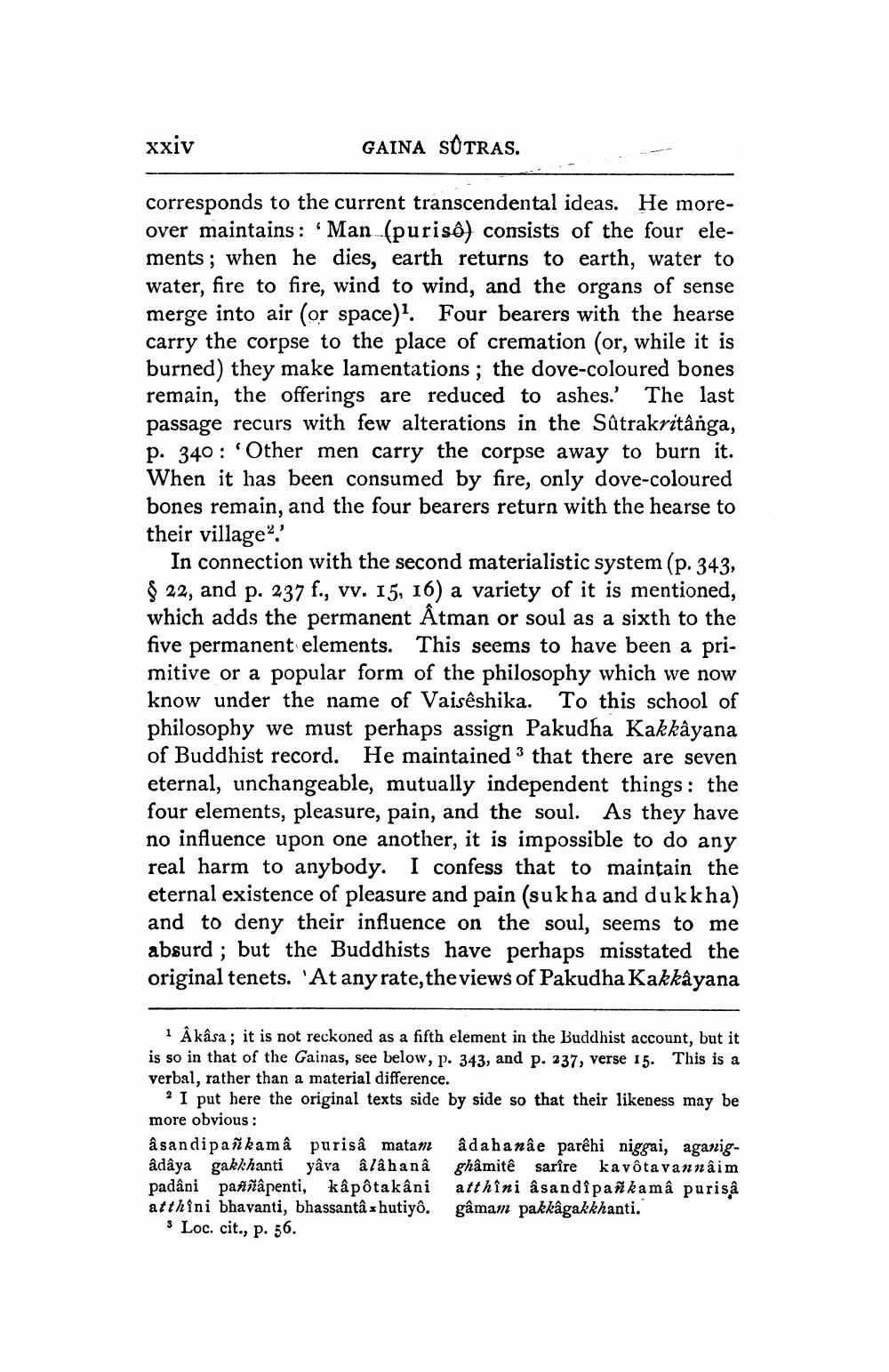________________
GAINA SUTRAS.
corresponds to the current transcendental ideas. He moreover maintains: 'Man (purisô) consists of the four elements; when he dies, earth returns to earth, water to water, fire to fire, wind to wind, and the organs of sense merge into air (or space)1. Four bearers with the hearse carry the corpse to the place of cremation (or, while it is burned) they make lamentations; the dove-coloured bones remain, the offerings are reduced to ashes.' The last passage recurs with few alterations in the Sûtrakritânga, p. 340 Other men carry the corpse away to burn it. When it has been consumed by fire, only dove-coloured bones remain, and the four bearers return with the hearse to their village".
In connection with the second materialistic system (p. 343, § 22, and p. 237 f., vv. 15, 16) a variety of it is mentioned, which adds the permanent Âtman or soul as a sixth to the five permanent elements. This seems to have been a primitive or a popular form of the philosophy which we now know under the name of Vaisêshika. To this school of philosophy we must perhaps assign Pakudha Kakkâyana of Buddhist record. He maintained 3 that there are seven eternal, unchangeable, mutually independent things: the four elements, pleasure, pain, and the soul. As they have no influence upon one another, it is impossible to do any real harm to anybody. I confess that to maintain the eternal existence of pleasure and pain (sukha and dukkha) and to deny their influence on the soul, seems to me absurd; but the Buddhists have perhaps misstated the original tenets. 'At any rate, the views of Pakudha Kakkâyana
xxiv
1 Âkâsa; it is not reckoned as a fifth element in the Buddhist account, but it is so in that of the Gainas, see below, p. 343, and p. 237, verse 15. This is a verbal, rather than a material difference.
2 I put here the original texts side by side so that their likeness may be more obvious:
âsandipaйkamâ purisâ matam âdâya gakkhanti yâva âlâhanâ padâni paññâpenti, kâpôtakâni atthini bhavanti, bhassantâ hutiyô. Loc. cit., p. 56.
âdahanâe parêhi niggai, aganigghâmitê sarîre kavôtavannâim atthini âsandîpañkamâ purisâ gâmam pakkâgakkhanti.




